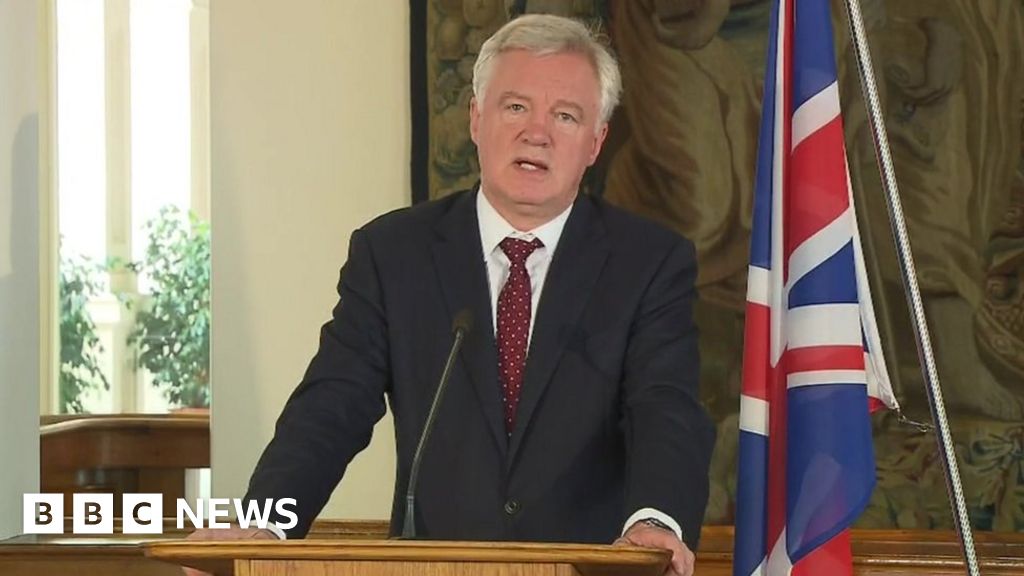Will A Split Destroy Reform UK's Chances?

Table of Contents
The Impact of Internal Factionalism on Voter Confidence
Internal disagreements within any political party can have a devastating impact on voter confidence. Public infighting and the perception of disunity create negative publicity, eroding trust and making it difficult to present a cohesive and credible image to the electorate. This is particularly damaging for a relatively new party like Reform UK, still vying for recognition and support.
- Negative media coverage of internal disputes: When disagreements spill into the public domain, news outlets often focus on the conflict rather than the party's policies, leading to negative headlines and shaping public perception. This negative publicity directly harms Reform UK's image and makes it harder to attract new voters.
- Decreased voter turnout due to uncertainty and lack of a unified message: Voters are more likely to support parties that present a clear and consistent message. Internal conflict creates uncertainty, causing potential supporters to hesitate and potentially stay home on election day, resulting in reduced voter turnout for Reform UK.
- Impact on campaign donations and fundraising efforts: Potential donors are wary of investing in a party seemingly riddled with internal strife. The perception of instability can significantly impact fundraising efforts, hindering the party's ability to run effective campaigns.
- Examples of similar situations in other political parties: History is replete with examples of political parties crippled by internal divisions. The UK Independence Party (UKIP) experienced significant setbacks due to internal battles, ultimately diminishing its electoral success. This serves as a cautionary tale for Reform UK. The lessons learned from such cases, particularly concerning the importance of party unity and effective conflict resolution mechanisms, are crucial for Reform UK’s survival.
Analyzing the Potential Consequences of a Split
A full-blown split in Reform UK could have catastrophic consequences. The most immediate impact would be a fractured voter base. This could lead to the formation of multiple smaller parties, each vying for the same pool of voters, thus significantly diluting Reform UK's overall strength and influence.
- Loss of key personnel and experienced campaigners: A split often results in the departure of key figures, including experienced campaigners and strategists, leaving the remaining factions weaker and less effective. This loss of expertise could cripple Reform UK's ability to compete effectively.
- Division of resources and financial support: Splitting the party means dividing limited resources, including funding, staff, and infrastructure. This division weakens each faction's capacity to run competitive campaigns.
- Reduced media coverage due to fragmentation: The media is more likely to focus on the larger, more unified entities. A fractured Reform UK would receive less media attention, making it harder to reach voters and convey its message.
- Increased vulnerability to established political parties: A weakened and divided Reform UK would be more susceptible to attacks from established parties that can exploit internal divisions to their advantage.
The Role of Leadership and Internal Conflict Resolution
Strong leadership is crucial in navigating internal conflicts and maintaining party unity. Effective communication strategies are essential to address disagreements openly and transparently, fostering understanding and compromise among party members.
- Effective communication strategies for addressing internal issues: Open dialogue, transparent communication, and clear articulation of the party's vision are essential for resolving conflicts and maintaining unity.
- The need for compromise and negotiation among party members: Finding common ground and reaching compromises is essential for overcoming internal divisions and forging a unified front.
- Potential for mediation or outside intervention: In cases where internal conflicts prove insurmountable, seeking outside mediation can help facilitate reconciliation and restore party unity.
- Importance of a clear party platform and vision: A strong, well-defined party platform and a clear vision for the future can help unite members around a common goal, reducing the likelihood of internal conflicts.
The Broader Political Landscape and its Influence
The current political climate significantly influences the impact of a Reform UK split. A divided Reform UK could create opportunities for other parties to gain support, particularly those appealing to similar voter demographics.
- Potential opportunities for other parties to gain support: A fractured Reform UK would leave a void in the political landscape, potentially attracting voters to other parties with similar platforms or appealing to disenfranchised Reform UK supporters.
- Shifting voter allegiances based on the outcome of any split: Voters may shift their allegiances depending on which faction they identify with or which platform they find more appealing.
- The impact on specific policy areas and electoral districts: A split could significantly affect the party's ability to influence specific policy areas and its performance in particular electoral districts.
Conclusion: The Fate of Reform UK Hinges on Unity
The evidence presented strongly suggests that internal divisions pose a serious threat to Reform UK's electoral prospects. A split would likely lead to decreased voter confidence, a weakened campaign, and increased vulnerability to established parties. The party's future hinges on its ability to resolve internal conflicts, foster unity, and present a clear, consistent message to the electorate. Avoiding a split is paramount for Reform UK's political survival. We urge readers to share their thoughts and engage in a discussion about the future of Reform UK and the vital importance of party unity in achieving its goals. What do you think Reform UK needs to do to avoid a potentially devastating split? Let's discuss the future of Reform UK.

Featured Posts
-
 Lizzo And Szas Unreleased Rock Project Details Emerge
May 04, 2025
Lizzo And Szas Unreleased Rock Project Details Emerge
May 04, 2025 -
 127 Years Of Brewing History Ends Anchor Brewing Companys Closure Announced
May 04, 2025
127 Years Of Brewing History Ends Anchor Brewing Companys Closure Announced
May 04, 2025 -
 Is Betting On The Los Angeles Wildfires A Sign Of The Times An Analysis Of The Trend
May 04, 2025
Is Betting On The Los Angeles Wildfires A Sign Of The Times An Analysis Of The Trend
May 04, 2025 -
 Verstappen Welcomes First Child Before Miami Grand Prix
May 04, 2025
Verstappen Welcomes First Child Before Miami Grand Prix
May 04, 2025 -
 Ufc Fight Night Sandhagen Vs Figueiredo Full Results And Event Summary
May 04, 2025
Ufc Fight Night Sandhagen Vs Figueiredo Full Results And Event Summary
May 04, 2025
